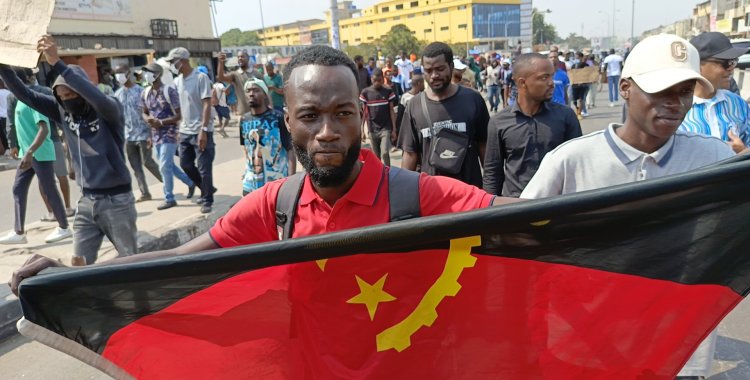In a statement of repudiation, the parliamentary group of the National Union for the Total Independence of Angola (UNITA), "vehemently repudiated" the way in which the police repressed the peaceful demonstration against the rise in the prices of diesel, public transport and tuition fees, called by several civil society organizations, which resulted in "arbitrary arrests and dozens of injuries among the citizens" who participated in the protest.
"The UNITA parliamentary group condemns the acts against the physical integrity of the protesters in general, and of the deputies in particular, who, duly identified and in solidarity with the just demands of the citizens, were present," the statement emphasized.
According to UNITA, there was "violence against Deputy Jeremias Mahula and other injured citizens, in a clear attack on their lives, physical integrity, and dignity, while they were fully exercising their constitutionally enshrined rights."
"The role of the National Police, under the Constitution of the Republic of Angola and the law, is to ensure public order, guarantee the safety of citizens, institutions, and public and private property, and not allow itself to be manipulated by a personal or partisan agenda aimed at establishing an autocratic and totalitarian state," the statement emphasizes.
The parliamentary group of the largest opposition party urged the competent authorities "to hold accountable those responsible for the attacks on Representative Mahula and the other victims resulting from the unjustified obstruction of the march and police violence against the protesters, and to provide compensation for the physical, moral, and material damages."
Police used tear gas to disperse a march of hundreds of citizens protesting in Luanda against the increase in fuel and public transportation prices, criticizing government authorities.
Since July 4th, the fare for shared taxis in Angola has been 300 kwanzas per trip, and the fare for city buses has risen to 200 kwanzas per trip since Monday. This measure follows the increase in the price of diesel, which rose from 300 to 400 kwanzas per liter.
Activists, civil society members, taxi drivers, vendors, students, and members of opposition political parties joined the march organized by the so-called social movement against the decree approving the fuel price increase in Angola, holding signs with slogans such as "fuel goes up, stomach rumbles"; "300 kwanzas is too much," "we don't accept laws that kill the people," "we're tired of eating from garbage," "the country is good, but the MPLA (the ruling party) is useless."
To deter the protesters, some of whom claimed they were heading for the Presidential Palace, the Rapid Intervention Police (PIR) dispersed the march by firing tear gas.
The situation caused panic among protesters and bystanders, who sought refuge, shouting and criticizing the PIR's actions. At several points, the police launched tear gas canisters, resulting in injuries and some people unconscious.







